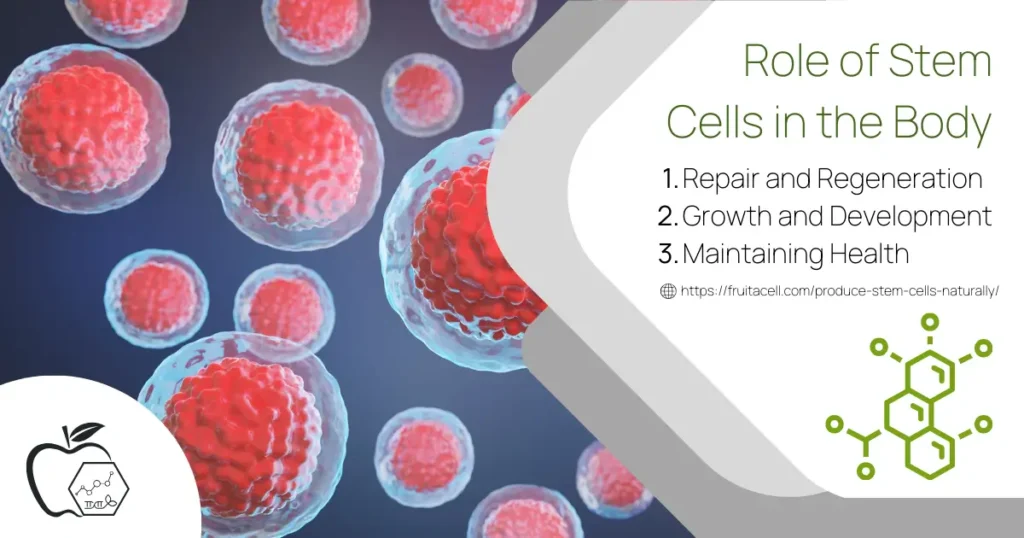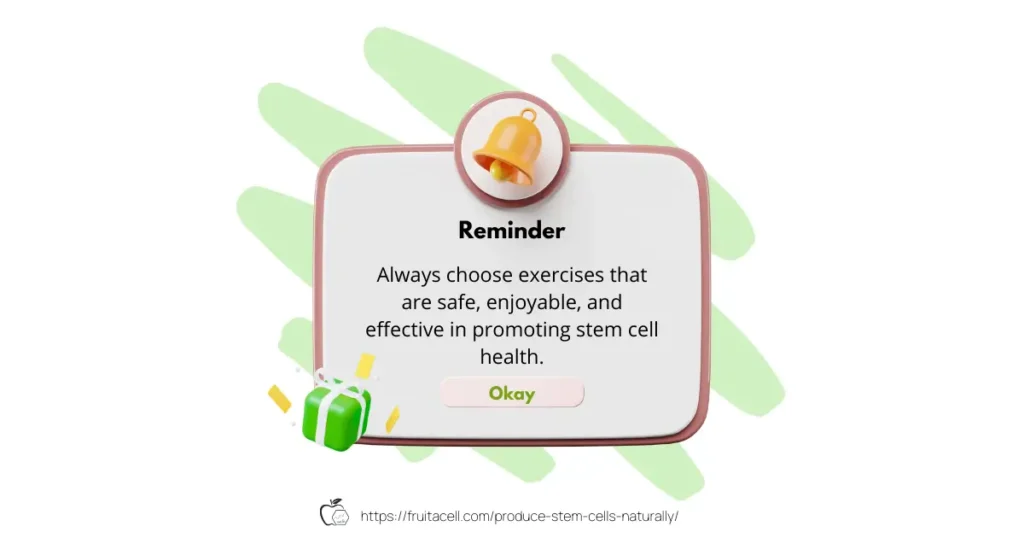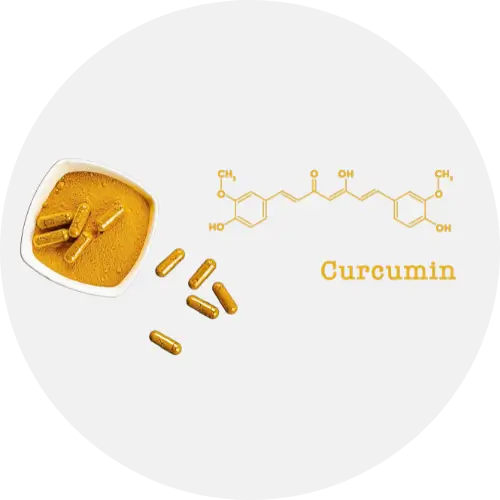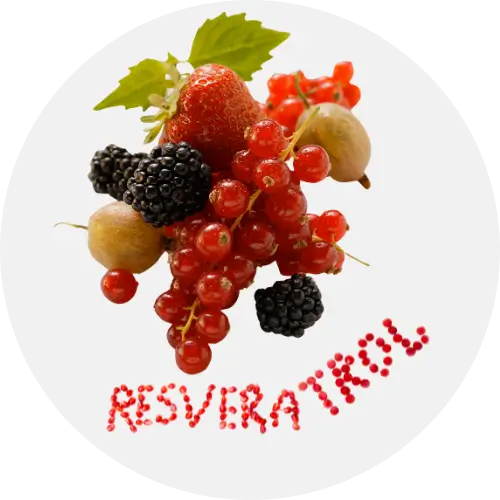Your cart is currently empty!
How can I produce more stem cells naturally?
—
Whether you’re recovering from an injury or simply looking to support your body’s natural healing processes, boosting your stem cell production can be highly beneficial.
In this article, we’ll explore strategies in detail, providing practical tips and advice to help you naturally increase your stem cell production.
Here are:
Understanding Stem Cells
Stem cells are unique because they have the potential to develop into many different cell types in the body.
They serve as a repair system, dividing to replenish other cells and maintain the normal turnover of regenerative organs, such as blood, skin, or intestinal tissues.
Understanding the basics of stem cells can help you appreciate the importance of supporting their production.
Types of Stem Cells
There are two main types of stem cells:
- Embryonic Stem Cells:
- These cells are derived from embryos and have the potential to develop into any cell type in the body.
- While they hold great promise for regenerative medicine, their use is often restricted to research due to ethical considerations.
- Adult Stem Cells:
- Also known as somatic or tissue-specific stem cells, these are found in various tissues throughout the body.
- They help repair and maintain the tissue in which they are found.
- For example, hematopoietic stem cells in the bone marrow can turn into various types of blood cells.
Role of Stem Cells in the Body
Stem cells play several critical roles:
- Repair and Regeneration: When you get injured or your tissues wear out, stem cells help by regenerating the damaged tissues.
- Growth and Development: During development, stem cells differentiate into various cell types that form organs and tissues.
- Maintaining Health: They continuously replenish cells in organs that frequently renew themselves, such as the skin, blood, and gut.

By supporting your body’s natural stem cell production, you enhance its ability to heal and maintain itself, contributing to overall health and longevity.
Diet and Nutrition
What you eat plays a significant role in the health and production of your stem cells.
A balanced diet rich in essential nutrients can help your body produce and maintain healthy stem cells, promoting better overall health.
Here’s how you can use available Filipino foods to boost stem cell production.
Importance of a Balanced Diet for Cell Health
A diet that includes a variety of foods ensures that you get all the necessary vitamins, minerals, antioxidants, and other nutrients that your body needs to function optimally.
These nutrients support cell health and can help protect stem cells from damage.
Filipino Foods that Promote Stem Cell Production
Here are some Filipino foods that are particularly beneficial for stem cell health:
Fruits and Vegetables
These are packed with antioxidants, vitamins, and minerals. Antioxidants help protect cells, including stem cells, from damage caused by free radicals.
Examples include:
- Malunggay (Moringa): Rich in vitamins A, C, and calcium, which are essential for cell health.
- Kangkong (Water Spinach): High in iron and other nutrients that support overall health.
- Papaya and Mango: Packed with vitamins C and A, which are beneficial for cell repair and growth.
- Squash: Contains beta-carotene and other antioxidants.
Healthy Fats
Found in foods like nuts and fish, healthy fats are essential for cell membranes and overall cell function.
Examples include:
- Bangus (Milkfish): A good source of omega-3 fatty acids, which support stem cell health.
- Buko (Coconut): Coconut oil and meat provide healthy fats that are good for overall health.
Lean Proteins
Proteins provide the building blocks (amino acids) for new cells. Incorporate these sources in moderation like:
- Chicken Adobo: A popular dish that provides lean protein.
- Tofu and Tempeh: Good plant-based protein sources.
- Monggo (Mung Beans): High in protein and essential nutrients.

Examples of Stem Cell-Friendly Filipino Meals and Snacks
- Breakfast: Champorado made with brown rice, served with a side of fresh mango.
- Lunch: Sinigang na Bangus with plenty of vegetables like kangkong, radish, and tomatoes.
- Dinner: Chicken Tinola with malunggay leaves and green papaya.
- Snacks: Sliced papaya or buko juice, a handful of cashews or pili nuts, or a small bowl of ginataang monggo.
By focusing on a balanced diet rich in these nutrient-dense Filipino foods, you can support your body’s natural stem cell production and overall health.
Physical Activity
Regular physical activity is crucial for overall health and well-being, and it also plays a significant role in boosting stem cell production.
Engaging in various forms of exercise can enhance blood flow, reduce inflammation, and promote the body’s natural repair mechanisms.
Benefits of Regular Exercise on Stem Cell Production
Exercise has numerous benefits for stem cell health, including:
- Improved Blood Flow: Exercise increases circulation, ensuring that stem cells and other nutrients are efficiently delivered to tissues throughout the body.
- Reduced Inflammation: Regular physical activity helps lower inflammation, which can otherwise damage cells and impair stem cell function.
- Enhanced Regeneration: Physical activity promotes the repair and regeneration of tissues, helping to maintain healthy organ function.

Types of Exercises to Incorporate
For individuals aged 40 and up, it’s essential to choose exercises that are safe, enjoyable, and effective in promoting stem cell health.
Here are some recommended types of exercises:
Aerobic Exercises
Activities that get your heart rate up and improve cardiovascular health. Examples include:
- Walking: A low-impact exercise that can be done almost anywhere.
- Swimming: Gentle on the joints and excellent for cardiovascular health.
- Dancing: A fun way to stay active and improve balance and coordination.
Strength Training
Exercises that build muscle and improve bone density. Examples include:
- Bodyweight Exercises: Such as squats, push-ups, and lunges.
- Light Weightlifting: Using dumbbells or resistance bands to add resistance.
Flexibility and Balance Exercises
Activities that improve flexibility and prevent falls. Examples include:
- Yoga: Enhances flexibility, strength, and mental well-being.
- Tai Chi: Improves balance and coordination through slow, controlled movements.
Tips for Creating a Balanced Exercise Routine
- Start Slowly: If you’re new to exercise or returning after a break, start with low-intensity activities and gradually increase the intensity and duration.
- Mix It Up: Incorporate a variety of exercises to target different muscle groups and keep your routine interesting.
- Stay Consistent: Aim for at least 30 minutes of moderate exercise most days of the week. Consistency is key to reaping the benefits.
- Listen to Your Body: Pay attention to how your body feels and adjust your activities as needed. Rest when necessary to avoid overexertion and injury.
By incorporating regular physical activity into your lifestyle, you can significantly enhance your body’s ability to produce and maintain healthy stem cells.
Sleep and Rest
Quality sleep and adequate rest are essential for overall health and well-being, including the production and maintenance of healthy stem cells.
During sleep, the body undergoes important repair and regeneration processes, allowing cells to recover and function optimally.
Here’s why prioritizing sleep and rest is crucial for stem cell health.
The Importance of Quality Sleep for Stem Cells
During sleep, the body enters various stages, including deep sleep and REM (rapid eye movement) sleep, each of which plays a unique role in promoting cellular repair and regeneration.
Stem cells are particularly active during these periods, helping to replace damaged cells and maintain tissue integrity.
Here’s how quality sleep supports stem cell health:
- Cellular Repair: Sleep allows the body to repair cellular damage accumulated throughout the day, including damage to stem cells themselves.
- Immune Function: Adequate sleep strengthens the immune system, enhancing the body’s ability to fight off infections and maintain overall health.
- Brain Health: Sleep is essential for cognitive function and memory consolidation, both of which are important for optimal brain and nervous system function, including stem cell regulation.

Recommended Sleep Duration and Tips for Better Sleep
The National Sleep Foundation recommends getting 7-9 hours of sleep per night for optimal health and well-being.
Here are some tips to improve sleep quality:
- Establish a Consistent Sleep Schedule: Go to bed and wake up at the same time every day, even on weekends, to regulate your body’s internal clock.
- Create a Relaxing Bedtime Routine: Engage in calming activities before bed, such as reading, listening to soothing music, or taking a warm bath, to signal to your body that it’s time to wind down.
- Create a Comfortable Sleep Environment: Ensure your bedroom is conducive to sleep by keeping it dark, quiet, and cool. Invest in a comfortable mattress and pillows that support proper alignment.
- Limit Screen Time Before Bed: Reduce exposure to electronic devices, such as smartphones, tablets, and computers, in the hour leading up to bedtime, as the blue light emitted can interfere with sleep quality.
- Limit Caffeine and Alcohol Intake: Avoid consuming caffeine and alcohol close to bedtime, as they can disrupt sleep patterns and lead to restless nights.
The Importance of Rest and Recovery
In addition to quality sleep, it’s essential to incorporate periods of rest into your daily routine.
Taking breaks throughout the day, practicing mindfulness or meditation, and engaging in hobbies or activities you enjoy can help reduce stress levels and promote overall well-being.
Remember that rest is not just about sleep—it’s about giving your body and mind the opportunity to recharge and rejuvenate.
By prioritizing quality sleep and adequate rest, you can support your body’s natural ability to produce and maintain healthy stem cells, leading to better overall health and vitality.
Stress Management
Chronic stress can hurt your overall health, including the production and function of stem cells.
Managing stress effectively is crucial for maintaining healthy stem cells and promoting overall well-being.
Here’s how you can reduce stress and support your body’s natural regenerative processes.
Impact of Stress on Stem Cells
Stress triggers the release of stress hormones like cortisol, which can negatively affect stem cell function and the body’s ability to repair and regenerate tissues.
Chronic stress can lead to:
- Increased Inflammation: Elevated stress levels can cause chronic inflammation, which damages cells and impairs stem cell activity.
- Weakened Immune System: Stress can suppress the immune system, making the body more susceptible to infections and slowing down the healing process.
- Accelerated Aging: Prolonged stress can accelerate the aging process by shortening telomeres, the protective caps on the ends of chromosomes, which affects cell division and longevity.
Techniques to Reduce Stress
Implementing stress-reducing techniques into your daily routine can help lower cortisol levels and protect stem cell health. Here are some effective strategies:
Meditation and Mindfulness:
- Practicing meditation or mindfulness techniques can help calm the mind, reduce anxiety, and promote a sense of well-being.
- Aim for at least 10-20 minutes of meditation each day.
Sit in a quiet place, close your eyes, and focus on your breath. Observe your thoughts without judgment and gently bring your focus back to your breath when your mind wanders.
Yoga and Deep Breathing Exercises:
- Yoga combines physical activity with deep breathing and relaxation techniques, making it an excellent way to reduce stress.
- Deep breathing exercises alone can also be highly effective.
Practice deep breathing by inhaling slowly through your nose for a count of four, holding your breath for a count of four, and exhaling slowly through your mouth for a count of four.
Physical Activity:
- Regular exercise is a powerful stress reducer.
- It releases endorphins, the body’s natural mood elevators, and helps reduce stress hormones.
Engage in activities like walking, swimming, or dancing for at least 30 minutes most days of the week.
Time Management and Hobbies:
- Effective time management can help reduce the stress of feeling overwhelmed.
- Make time for hobbies and activities that you enjoy and that bring you a sense of satisfaction.
Set aside time each week for activities you love, such as gardening, reading, or painting.
Social Connections:
- Maintaining strong social connections and having a support system can help buffer against stress.
- Spend time with friends and family, and don’t hesitate to seek support when needed.
Plan regular gatherings with friends or family, or join a group or club that interests you.
The Concept of Ikigai
Applying the Japanese concept of Ikigai can also be a powerful way to manage stress and enhance overall well-being.
Ikigai, which means “a reason for being,” is about finding a balance between what you love, what you are good at, what the world needs, and what you can be paid for.

Discovering your Ikigai can bring a deep sense of purpose and satisfaction, reducing stress and promoting a positive outlook on life.
- What You Love (Passion): Engage in activities that you are passionate about and that bring you joy.
- What You Are Good At (Vocation): Utilize your skills and strengths in activities that give you a sense of accomplishment.
- What the World Needs (Mission): Contribute to the well-being of others and the community, finding a sense of purpose in making a difference.
- What You Can Be Paid For (Profession): Align your career with your passions and strengths to create a fulfilling professional life.
By finding your Ikigai, you can create a life that feels meaningful and fulfilling, reducing stress and supporting overall health, including the health of your stem cells.
By applying these stress-reducing techniques and the concept of Ikigai into your daily routine, you can protect your stem cells and promote overall health and well-being.
Avoiding Toxins
Exposure to toxins can harm your overall health and impede your body’s ability to produce and maintain healthy stem cells.
Reducing your exposure to harmful substances can significantly enhance your stem cell function and promote better health.
How Toxins Affect Stem Cells
Toxins can damage cells and tissues, leading to various health issues.
Here’s how they impact stem cells:
- Cell Damage: Toxins can cause oxidative stress and inflammation, damaging cells, including stem cells, and impairing their function.
- Impaired Regeneration: Exposure to toxins can hinder the body’s natural repair processes, making it harder for stem cells to regenerate tissues effectively.
- Increased Risk of Disease: Chronic exposure to toxins can increase the risk of developing chronic diseases, such as cancer, cardiovascular diseases, and neurodegenerative disorders.
Common Sources of Toxins
Understanding common sources of toxins can help you take steps to minimize exposure.
These include:
- Environmental Pollutants: Air pollution, pesticides, and industrial chemicals.
- Household Products: Cleaning agents, personal care products, and plastics.
- Food and Water: Contaminants in food and water, such as pesticides, heavy metals, and food additives.
- Lifestyle Choices: Smoking, excessive alcohol consumption, and drug use.
Strategies to Minimize Toxin Exposure
Implementing strategies to reduce your exposure to toxins can support your stem cell health and overall well-being:
Choose Organic Foods:
- Opt for organic fruits and vegetables to reduce pesticide exposure.
- Wash all produce thoroughly.
- Choose locally grown organic produce when possible, and wash fruits and vegetables with a vinegar-water solution to remove pesticide residues.
Use Natural Cleaning Products:
- Switch to natural or homemade cleaning products to avoid harsh chemicals.
- Use vinegar, baking soda, and lemon juice as effective and non-toxic cleaning agents.
Filter Your Water:
- Use a water filter to remove contaminants from your drinking water.
- Install a water filter system that can remove heavy metals, chlorine, and other impurities from your tap water.
Avoid Plastics:
- Reduce the use of plastic containers and bottles, especially those containing BPA.
- Store food in glass or stainless steel containers and use reusable cloth bags instead of plastic bags.
Choose Natural Personal Care Products:
- Select personal care products that are free from parabens, phthalates, and synthetic fragrances.
- Look for labels that say “paraben-free” and “phthalate-free” and choose products with natural ingredients.
Avoid Smoking and Limit Alcohol:
- Avoid smoking and limit alcohol consumption to reduce toxin intake.
- If you smoke, seek support to quit, and limit alcohol intake to moderate levels, such as one drink per day for women and two drinks per day for men.
Detoxification Support
Supporting your body’s natural detoxification processes can also help eliminate toxins:
- Stay Hydrated: Drinking plenty of water helps flush out toxins.
- Eat Detoxifying Foods: Incorporate foods that support liver health and detoxification, such as garlic, onions, and cruciferous vegetables like broccoli and cabbage.
- Exercise Regularly: Physical activity promotes sweating, which can help expel toxins through the skin.
By minimizing exposure to toxins and supporting your body’s detoxification processes, you can protect your stem cells and promote better overall health.
Natural Supplements
In addition to maintaining a healthy diet, regular physical activity, quality sleep, stress management, and avoiding toxins, certain natural supplements can support stem cell health and production.
While supplements should not replace a balanced diet, they can provide additional nutrients that may enhance your body’s ability to produce and maintain healthy stem cells.
Benefits of Natural Supplements for Stem Cell Health
Natural supplements can provide specific nutrients that support stem cell health, including antioxidants, vitamins, and minerals that may be difficult to obtain in sufficient quantities from diet alone.
Here are some benefits of natural supplements:
- Enhanced Cellular Repair: Some supplements can help repair damaged cells and promote the regeneration of tissues.
- Reduced Inflammation: Anti-inflammatory supplements can help reduce chronic inflammation, which can damage stem cells.
- Improved Immune Function: Supplements that support the immune system can help protect against infections and promote overall health.
Recommended Supplements for Stem Cell Health
Here are some natural supplements that may support stem cell health:

Omega-3 Fatty Acids
- Found in fish oil and flaxseed oil, omega-3 fatty acids are known for their anti-inflammatory properties and ability to support cellular health.
- Dosage: 1,000-2,000 mg of combined EPA and DHA daily.

Curcumin
- The active ingredient in turmeric, curcumin has powerful anti-inflammatory and antioxidant properties.
- Dosage: 500-1,000 mg of curcumin daily, preferably with black pepper extract (piperine) to enhance absorption.

Resveratrol
- A compound found in red grapes and berries, resveratrol has been shown to support stem cell health and protect against cellular aging.
- Dosage: 100-500 mg daily.

Vitamin D
- Essential for bone health and immune function, vitamin D can also support stem cell health.
- Dosage: 1,000-2,000 IU daily, or more if deficient, as determined by a healthcare provider.

Coenzyme Q10 (CoQ10)
- An antioxidant that supports cellular energy production and protects cells from oxidative damage.
- Dosage: 100-200 mg daily.

Green Tea Extract
- Rich in antioxidants, green tea extract can help protect cells and support overall health.
- Dosage: 250-500 mg of standardized extract (with 50% EGCG) daily.
Tips for Choosing and Using Supplements
When considering natural supplements, it’s essential to choose high-quality products and use them appropriately:
- Consult with a Healthcare Provider: Before starting any new supplement regimen, it’s important to consult with a healthcare provider, especially if you have any underlying health conditions or are taking other medications.
- Choose High-Quality Supplements: Look for supplements that are third-party tested for purity and potency. Avoid products with unnecessary fillers, artificial colors, or additives.
- Follow Dosage Recommendations: Stick to the recommended dosages provided on the supplement labels or as advised by your healthcare provider. Taking more than the recommended amount can sometimes cause adverse effects.
- Monitor for Side Effects: Be aware of any potential side effects and discontinue use if you experience any adverse reactions. Report any concerns to your healthcare provider.
By incorporating these natural supplements into your routine, alongside a healthy diet and lifestyle, you can support your body’s natural ability to produce and maintain healthy stem cells.
Key Takeaways
Improving stem cell health involves a healthy lifestyle. Here’s a quick summary and easy steps to follow:
Key Points
- Diet and Nutrition: Eat a variety of fruits, vegetables, lean proteins, and healthy fats. Focus on Filipino foods like malunggay, kangkong, bangus, papaya, and mung beans.
- Physical Activity: Exercise regularly. Including walking, swimming, strength training, and stretching. Aim for 30 minutes most days.
- Sleep and Rest: Get 7-9 hours of sleep each night. Keep a regular sleep schedule and create a relaxing bedtime routine.
- Stress Management: Reduce stress with meditation, yoga, and physical activity. Find your Ikigai (purpose) to create balance and reduce stress.
- Avoiding Toxins: Limit exposure to pollutants, chemicals, and harmful substances. Choose organic foods, use natural products, filter water, and avoid smoking and excessive alcohol.
- Natural Supplements: Consider supplements like omega-3s, curcumin, resveratrol, vitamin D, CoQ10, green tea extract, and astragalus. Consult a healthcare provider first.
Actionable Steps
- Revamp Your Diet:
- Eat more fruits and vegetables daily.
- Choose organic when possible and wash all produce.
- Add lean proteins and healthy fats to meals.
- Get Moving:
- Schedule daily exercise, even a brisk walk.
- Try swimming, yoga, or dancing for variety.
- Do strength training like bodyweight exercises.
- Prioritize Sleep:
- Set a regular bedtime and wake-up time.
- Create a relaxing bedtime routine.
- Ensure your bedroom is dark, quiet, and cool.
- Manage Stress:
- Practice meditation or mindfulness for 10 minutes daily.
- Try yoga or deep breathing exercises.
- Reflect on your Ikigai and engage in meaningful activities.
- Reduce Toxin Exposure:
- Use natural cleaning and personal care products.
- Store food in glass or stainless steel containers.
- Drink filtered water and avoid smoking and excess alcohol.
- Consider Supplements:
- Talk to your doctor about supplements like omega-3s and vitamin D.
- Choose high-quality supplements and follow dosage instructions.
- Watch for side effects and adjust as needed.
By following these steps, you can support your stem cells and improve your overall health. Start small and stay consistent for the best results.
Conclusion
Start with one or two changes and gradually incorporate more as you feel comfortable. Consult with healthcare professionals for personalized guidance and support along the way.
By prioritizing your health and taking proactive steps to support your stem cells, you can enjoy a healthier and more vibrant life for years to come.
References
- National Institute on Aging. (2019). Stem Cell Basics. Stem Cell Basics | STEM Cell Information (nih.gov)
- Harvard T.H. Chan School of Public Health. (2021). The Nutrition Source: Healthy Eating Plate. https://www.hsph.harvard.edu/nutritionsource/healthy-eating-plate/
- American Heart Association. (n.d.). Healthy Eating. https://www.heart.org/en/healthy-living/healthy-eating
- Centers for Disease Control and Prevention. (2021). Physical Activity Basics. https://www.cdc.gov/physicalactivity/basics/index.htm
- National Sleep Foundation. (n.d.). How Much Sleep Do We Really Need? https://www.sleepfoundation.org/how-sleep-works/how-much-sleep-do-we-really-need
- Mayo Clinic. (2021). Stress Management. https://www.mayoclinic.org/healthy-lifestyle/stress-management/basics/stress-basics/hlv-20049495
- Environmental Protection Agency. (2021). Reduce, Reuse, Recycle. https://www.epa.gov/recycle/reduce-reuse-recycle
- National Center for Complementary and Integrative Health. (2020). Omega-3 Supplements: In Depth. https://www.nccih.nih.gov/health/omega3-supplements-in-depth
- University of California, San Francisco. (n.d.). Curcumin. https://cancer.ucsf.edu/cancer/cancer-types/curcumin
- National Center for Biotechnology Information. (2020). Resveratrol. https://pubchem.ncbi.nlm.nih.gov/compound/Resveratrol
- National Institutes of Health Office of Dietary Supplements. (2021). Vitamin D. https://ods.od.nih.gov/factsheets/VitaminD-HealthProfessional/
- Cleveland Clinic. (2020). Coenzyme Q10 (CoQ10): Health Benefits, Uses, Side Effects & More. https://my.clevelandclinic.org/health/drugs/11007-coenzyme-q10-coq10
- University of Maryland Medical Center. (2020). Green Tea. https://www.umm.edu/health/medical/altmed/herb/green-tea
- National Cancer Institute. (n.d.). Astragalus Root. https://www.cancer.gov/publications/dictionaries/cancer-terms/def/astragalus-root
- National Institutes of Health Office of Dietary Supplements. (2021). Omega-3 Fatty Acids. https://ods.od.nih.gov/factsheets/Omega3FattyAcids-HealthProfessional/
- Cleveland Clinic. (2020). Curcumin: Health Benefits, Uses, Side Effects & More. https://my.clevelandclinic.org/health/drugs/20698-curcumin
- Oregon State University. (2021). Micronutrient Information Center: Resveratrol. https://lpi.oregonstate.edu/mic/dietary-factors/phytochemicals/resveratrol
- Mayo Clinic. (2021). Vitamin D: Can It Prevent COVID-19? https://www.mayoclinic.org/diseases-conditions/coronavirus/expert-answers/vitamin-d-covid/faq-20493088
- National Cancer Institute. (2020). Coenzyme Q10. https://www.cancer.gov/publications/dictionaries/cancer-terms/def/coenzyme-q10
- National Center for Complementary and Integrative Health. (2021). Green Tea. https://www.nccih.nih.gov/health/green-tea
Disclaimer
The information provided in this article is for educational and informational purposes only. It is not intended as medical advice or to replace the advice of a qualified healthcare professional. Readers should consult with a healthcare provider before making any decisions about their skincare, wellness, or dietary supplement regimens.
Comments
One response to “How can I produce more stem cells naturally?”
[…] Stem cells play a crucial role in keeping us healthy. Whether repairing a scraped knee, regenerating skin after a sunburn, or even helping to grow new tissues and organs, stem cells are always on standby, ready to spring into action. […]
Leave a Reply